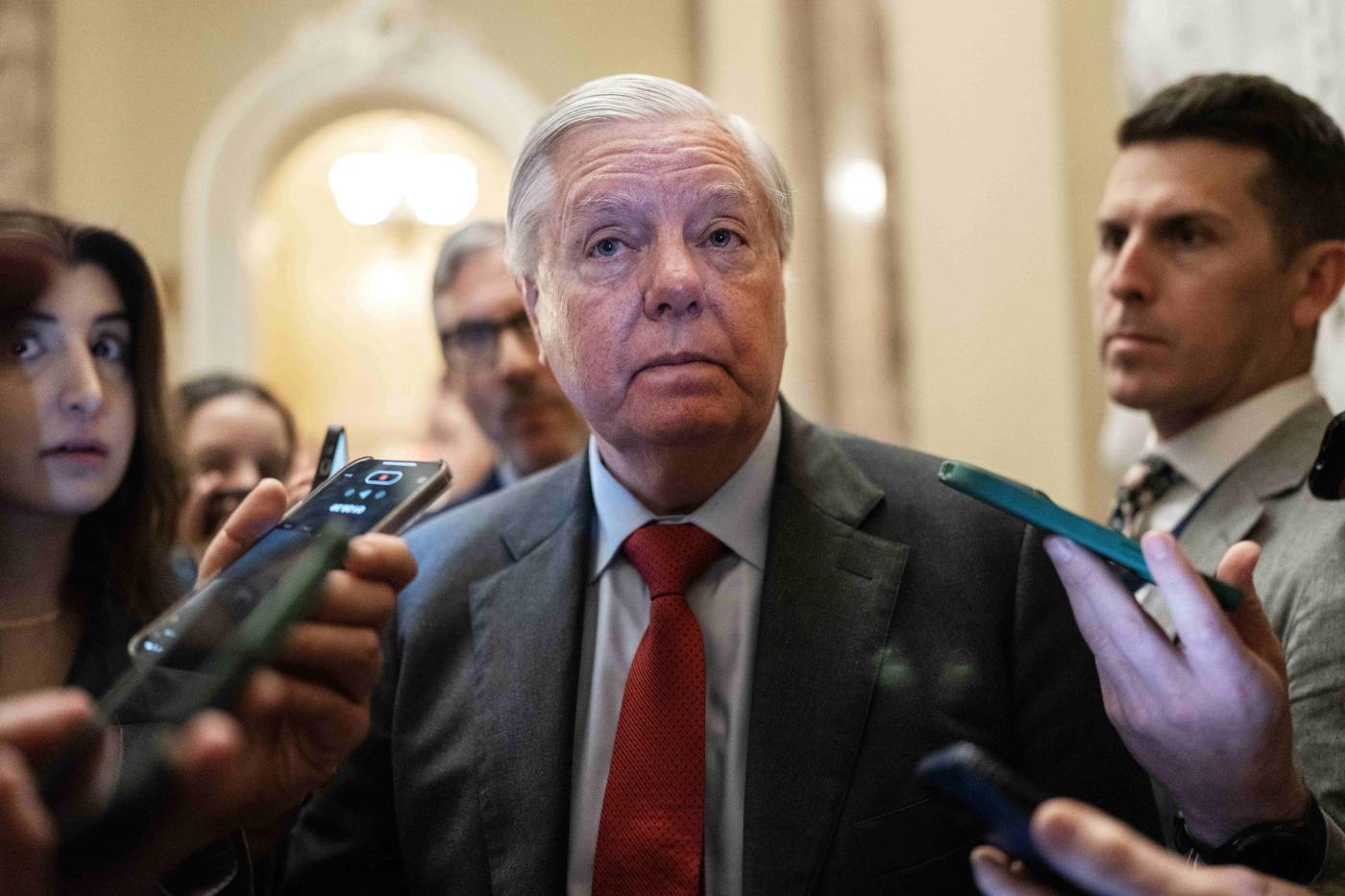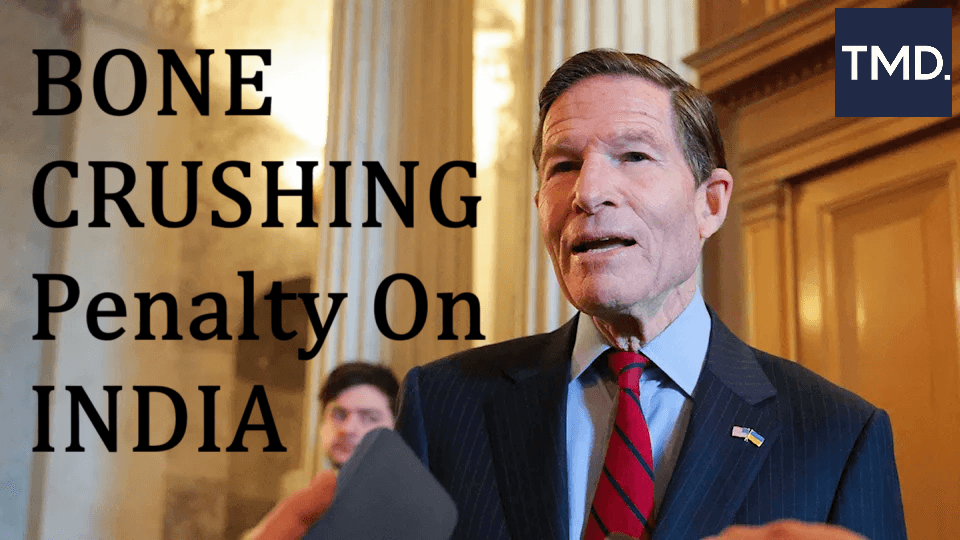Facing bone-crushing U.S. sanctions, India stands at a crossroads. Discover 7 powerful reasons why buying Russian oil is essential for India’s future.
1. Data Speaks Louder: India’s Savings on the Line
In the past year, Russia supplied nearly 40% of India’s crude oil, offering prices about $15–20 cheaper per barrel than Middle Eastern alternatives. This strategic choice saved India an estimated ₹60,000 crore (~$7.2 billion)—funds that supported inflation control, fuel affordability, and public welfare.
❗️US Senator Promotes “Bone-Crushing” Penalties on India – Russia Sanctions Bill
Richard Blumenthal claims Europe is supporting America’s mass sanctions pkg that would hit China and India with 500% tariffs for buying Russian oil.
Washington desperately trying to push the world… pic.twitter.com/k2Gl9uB1iO
— RT_India (@RT_India_news) July 11, 2025
But U.S. senators are threatening 500% tariffs on countries buying Russian oil, calling them “bone-crushing sanctions”. If implemented, the cost of imports could double overnight, wiping out India’s savings and destabilizing key economic sectors.
2. An Economic Lifeline or a Risk Worth Taking?
By embracing discounted Russian crude, India secured a reliable fuel source. It enabled stable prices for farmers, uninterrupted logistics, and predictable manufacturing costs. However, the threat of steep U.S. tariffs raises the risk of sudden supply shocks and inflation—creating a double-edged dilemma.

3. U.S. Political Theater: Sanctions as Leverage
Senior U.S. Senators Lindsey Graham and Richard Blumenthal—sponsors of the Sanctioning Russia Act of 2025—have explicitly called for “bone-crushing” tariffs targeting India, China, and Brazil. With more than 80 bipartisan supporters, the legislation empowers the president to act and may carry a 180-day waiver for select allies.
This blunt instrument is less about global stability and more about Washington flexing its diplomatic muscle: compelling nations to align with U.S. foreign policies or face economic consequences.
4. Why India Must Refuse to Fold
India is far more than a market—it’s a sovereign nation with 1.4 billion people, strategic ambitions, and a guiding principle of multi-alignment. Energy decisions are dictated by national need, not foreign diktats. Succumbing to U.S. pressure would risk inflation, currency instability, and the trust of millions of Indian households.
5. Global Backlash: A Watershed Moment in Trade Politics
India isn’t alone. China, already facing import rerouting and retaliatory moves, has signaled readiness to contest tariffs at global forums. Brazil and other BRICS nations are expressing solidarity, viewing this coercion as incompatible with a multipolar world.
In the weeks ahead, tariff debates may push major economies to work around U.S. dominance—expanding regional currency trading, forging non-U.S. centered energy corridors, and accelerating de-dollarization.
6. The Stakes: Beyond Diplomacy, Into Daily Life
If India caves:
Fuel costs surge, hitting consumers immediately
Transport prices inflate, pushing up food and goods
Agricultural margin shrinks, compromising farm incomes
Budget deficits grow, squeezing welfare spending
The alternative? Maintain stability, preserve growth, and reinforce India’s global credibility as a self-governing power.
7. What Comes Next: Charting India’s Course
| Timeline | Key Developments to Watch |
|---|---|
| July–Aug 2025 | India may start bilateral negotiations and seek WTO solutions |
| Mid-2025 | China readies formal complaints and shifts supply lines |
| Late 2025 | Watch for possible U.S. imposition of secondary tariffs |
| 2026 Onwards | BRICS and other partners may experiment with de-dollarized trade |
India’s path will be tested—but the world is watching.
Final Verdict: Sovereignty Over Subservience
The U.S. is signaling it won’t tolerate independent energy choices. But for India, acquiescence would mean sacrificing its economy, autonomy, and dignity. On the flip side, resisting may invite temporary friction—but it builds long-term respect, strategic clarity, and enduring energy partnerships.
This is India’s moment: to choose leadership, not subjugation.
To get more updates visit: The Morning Draft



1 thought on “US Senator Demands ‘Bone-Crushing Sanctions’ to Crush Russian Oil Deals with India, China, and Brazil 2025”